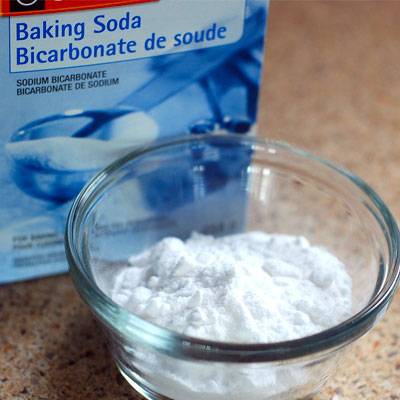Some Interesting Facts About Cortisol
- Cortisol is a type of hormone that is naturally released from the adrenal glands and beneficial for various health functions
- When under stress, the cortisol levels generally increase
- If the body produces too much or too little cortisol levels, it can lead to serious health issues
- Corticosteroids are mock cortisol that can be prescribed by the doctor during particular health conditions
According to research, the increase in stress levels has caused several emotional and physical health issues. The doctors are now focusing on the increase or decrease of the cortisol hormone for important body functions. To manage the stress levels, it is important to work on the cortisol levels. However, it should be noted that when the cortisol hormones increase at a particular moment due to stress, it doesn’t mean that the person is suffering from a high cortisol lifetime.
Thinking about what is cortisol and what is the role of cortisol? Well, you have landed on the right page for all the answers related to cortisol. Scroll down and learn about it in detail.
What is the cortisol hormone?
New to the word cortisol? Or wondering what the cortisol hormone does? Cortisol is a glucocorticoid or steroid hormone produced by the adrenal glands above the kidney. During stressful moments, the cortisol levels increase and flow freely into the bloodstream. Cortisol is important for maintaining blood pressure and blood glucose levels in the body, regulating anti-inflammatory functions, managing immune functions, and dealing with hyperarousal responses. Hence, it is important to have a proper balance of cortisol levels for a healthy life.
But what happens when cortisol hormone imbalance is observed? Well, the hormone imbalance cortisol is natural, and the fluctuation is observed anytime throughout the day. An increase in the stress levels would increase the cortisol production, which is temporary, and would get back to a normal state. However, if the cortisol imbalance remains for a longer time, it can surely lead to serious health issues.

Cortisol is essential for your body as it helps it function in different ways. The list of cortisol hormone functions includes:
- Reduction in inflammation
- Controls the blood pressure and blood sugar levels in the body
- Increases the glucose metabolism in the body
- It helps your body respond to danger and stress effectively
- Helps in releasing breast milk during lactation
- The hormones are helpful during contractions of urine, myometrium, and easing of pelvic ligaments
- Helps in controlling your sleeping cycle
In short, the cortisol function is to help your body survive through stressful situations naturally to professed threats.
What are the results of an imbalance in cortisol levels?
Your body produces sufficient cortisol hormones daily to keep you healthy. However, during stress, the body might produce more or less cortisol hormones. And both have a serious impact on your health. Let’s study both situations in detail.
1. High cortisol hormones
Are you suffering from Cushing’s syndrome? Or are you facing stressful situations for a long time? In both cases, your body would produce a high amount of cortisol hormones. Apart from these, if your intake of coffee or any other caffeine products is high, it also increases cortisol hormones in the body. When the body produces too many cortisol hormones, you are likely to suffer from health issues. Some of the elevated cortisol symptoms are disinterest in sex, irregular menses, stifled immunity, anxiety, diabetes, etc.
When the body releases too many cortisol hormones, it results in Cushing’s syndrome. Some other high cortisol symptoms observed include:
- Purple stretch marks or bruises on the skin
- Increased dehydration and frequent need for urination
- Low bone density
- High blood pressure levels
- Mood swings
- Amenorrhea
- Osteoporosis
- Weak muscles
- Round and flushed face
- Increase in weight rapidly with fat getting stored around the chest and abdomen, slim legs and arms, and fuzzy face
- Fragile and thin skin with slow healing
- Acne
Other than these, symptoms of high cortisol levels in females include irregular menstruation cycles, acne, fertility issues, changes in libido, depression, anxiety, difficulty remembering things or focusing, sleeping issues, and facial hair. Some other reasons behind increased cortisol hormones are taking medications high in corticosteroids, tumors in the pituitary gland or lungs, adrenal gland tumors, and hyperplasia.
2. Low Cortisol hormones
Just as Cushing’s syndrome leads to increased cortisol hormones, Addison’s disease is a condition in which the body produces low cortisol hormones. When the body produces a low amount of cortisol for a longer time, it can lead to CAH (congenital adrenal hyperplasia). Due to this, the patient suffers from autoimmune diseases and hormonal imbalances. At times, the adrenal glands might also be damaged due to blood loss or infection. Other symptoms on the list are:
- Loss of muscles
- Mood swings
- Fatigue and dizziness
- Changes in the skin, like dark scars
- Weight loss
- Vomiting, nausea, and diarrhea
- Loss of appetite
- Low blood pressure levels
The body might also limit the production of cortisol once you stop taking corticosteroid medications post-treatment. It should be noted that if these conditions are not treated on time, it can lead to life-threatening health conditions.
Tips to balance cortisol levels
Patients experiencing high cortisol levels or Cushing’s syndrome would be prescribed a proper medical treatment to reduce the cortisol levels. The treatment includes medications and surgery in intense situations. Similarly, patients with low cortisol levels would also be given medications.
Apart from the medical treatment, certain things would help you balance low or high cortisol levels. Here is what you need to practice in your day-to-day life.
1. Have quality sleep
Insomnia, sleep apnea, late-night working hours, etc. are chronic sleep problems that increase your cortisol levels. Hence, cultivate a healthy sleeping routine of a minimum of 7 to 8 hours.
2. Limit stress
Learn about your thinking patterns, heart rate, and breathing patterns. Knowing all these would help you learn about your nerve-wracking thinking pattern and other symptoms related to it. When you feel all these, try limiting stressful thinking and diverting your mind to control the release of cortisol hormones.
3. Eat healthy
Having a balanced diet is important when working on cortisol levels. Include food ingredients rich in fiber like whole grains, beans, fruits, and vegetables. Consume foods rich in Omega-3 fatty acids, like fish and seafood. Reduce the intake of sugary items and caffeine. This would not only improve your digestive and immune systems but would also help in limiting cortisol levels.
4. Exercise and meditation
According to doctors, including exercises and meditation in your routine would help you reduce your stress levels and improve your sleeping patterns. And this would indirectly reduce your cortisol levels and control them.
5. Breathing exercises
Deep breathing exercises help stimulate the parasympathetic nervous system and your immune and digestive systems. This helps in reducing the cortisol levels to a great extent.
6. Opt for healthy relationships
Maintaining healthy relationships is very important for managing your cortisol levels. Having a stressful relationship at home, the office, or even school can add to your stress levels and lead to an increase in cortisol and hormones. So, try to have a healthy relationship with everyone to reduce the stress levels.
7. Enjoy and laugh
When you laugh, your body releases endorphin hormones and quashes cortisol. Hence, make sure to participate in fun activities, enjoy your hobbies, try laughter therapies, etc. to reduce the cortisol levels highest production.
No doubt, practicing all these would help in managing the cortisol levels. But when it comes to females, the treatment depends on the primary conditions. The doctors usually provide an altered treatment based on the symptoms and condition of the female patient. The treatment for high cortisol levels in females includes:
- If you are on glucocorticoid medications, the doctor might ask you to reduce the dosage or change the medications to non-glucocorticoid ones
- If the increase in cortisol levels is due to a tumor or Cushing’s syndrome, the doctors might recommend radiation therapy or surgery. Sometimes, the adrenal glands might be removed through the bilateral adrenalectomy
- Another solution to how to reduce cortisol is through medications like mitotane, osilodrostat, and ketoconazole. If the female is suffering from type 2 diabetes or high blood sugar levels along with Cushing’s syndrome, the doctors might recommend Mifepristone.
Apart from the above-mentioned treatments, the females would also be asked to make changes in their lifestyle like regular exercises or yoga, following a healthy diet, drinking sufficient water, getting sufficient sleep, etc. Avoiding alcoholic beverages, caffeine, and cigarettes also comes with a positive impact on the increased cortisol levels.
So, when should you see a healthcare practitioner? Well, if the symptoms of Cushing’s syndrome appear or you observe adrenal insufficiency, it is high time to see a doctor.
Final Words
Cortisol is one of the essential hormones that has a huge impact on several body functions. Hence, it is important to manage your stress levels to control the production of the cortisol hormones. However, if the cortisol hormones increase or decrease and you observe any kind of symptoms, it is advised to seek medical attention as soon as possible. It should also be noted that experimenting with different things on your own to control cortisol levels can be dangerous.


















